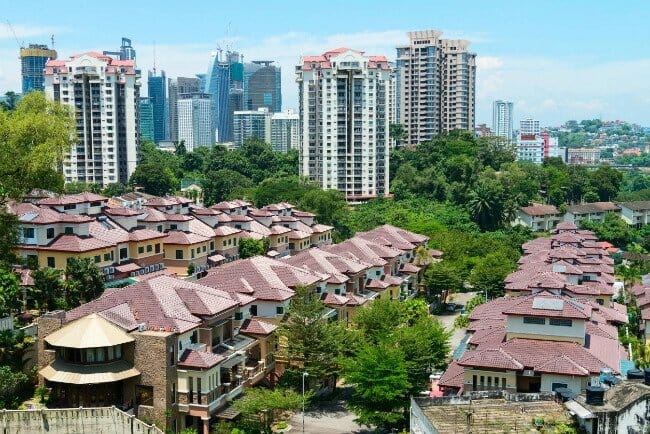The emergence of the war in Ukraine on 24 Feb 2022 had shaken the world that was still reeling from the effects of the COVID -19 pandemic.
The resulting turmoil in global markets had shaken investor confidence, though there is still some encouraging news if one looks at the Southeast Asian region, especially its residential housing market.
“The emergence of inflation has necessitated governments to increase interest rates, thus creating tighter financial conditions,” said Dr Lee Nai Jia, head of PropertyGuru Group’s Real Estate Intelligence.
Sharing his findings in a report entitled ‘Southeast Asia: Macro Economic Trends and Impact on the Residential Market (Oct 2022), developed by PropertyGuru For Business, Lee revealed that it is not all doom and gloom for the Southeast Asian residential property market.
According to Lee, the silver lining lies in the fundamentals of Southeast Asian economies, even though two key ASEAN trade partners – China and the United States – had exhibited indications of decline in Q2 of 2022, with the GDP of the US having decreased at an annual rate of 0.6% in Q2 of 2022, extending the 1.6% decrease in Q1.
He pointed out that the return of confidence following post-Covid lock downs and the easing of restrictive measures bringing some relief, coupled with strong labour markets that support a robust housing market, as well as the steady flow of foreign direct investments into Southeast Asia, does provide a buffer against market vagaries caused by the pandemic and war.
“Despite uncertainties in the global outlook, Thailand, Indonesia and Malaysia are showing increasing demand, with the latter two showing higher asking prices or listing prices. In fact, Malaysia, Singapore, Thailand and Vietnam residential markets continue to display resilience, as established by PropertyGuru’s proprietary indices,” said Lee.
In Q2 of this year, residential markets in Malaysia, Singapore, Indonesia, and Vietnam logged an increase in prices, even though sales in Singapore and Vietnam are slowing. In Thailand, while the prices of homes remained conservative, there has been a surge in demand that implied a possible recovery in the market.
“There has been a general rebound in Malaysia, Singapore, Indonesia, Thailand and Vietnam that followed the reopening of borders and more relaxed measures associated with curbing COVID.
“The factors supporting the growth of the Malaysian market are there: Malaysia and Vietnam both recorded the highest GDP increase, at about 8.9% and 7.7% y-o-y respectively in Q2 of 2022,” said Lee, who explained that as economies returned to pre-pandemic levels, labour markets tightened across all five economies in Q2.
This, he said, led to better financial positions that in turn facilitated the maintenance of mortgage payments and the ability of raise asking prices.
In terms of attracting foreign investments, the Southeast Asian region continued to be a magnet for FDI, which directly supported job growth and enabled economies a quicker rebound from the pandemic-led slowdown.
Lee said Malaysia witnessed a jump of FDI of 264% in 2021 to almost US$11.6 billion (RM54.75 billion) from the previous US$3.2 billion (RM15.1 billion) in 2020. “Malaysia maintained its position as an investment magnet, attracting US$28bil (132.16 billion) in 1H of 2022, of which US$17.7bil came from the service sector.”
Going forward, and barring any more major shocks to the economy, economic growth for Malaysia, Singapore, Indonesia, and Thailand is expected to moderate in 1H of 2023, while Vietnam is forecasted to experience economic expansion.
“We project that the residential markets in Malaysia and Indonesia will transit to the quadrant where prices appreciate, but sales volume decrease, in H1 2023,” said Lee, who added that those from the low-to-middle income households might be priced out of the market as most homeowners would only be willing to sell should their asking prices be met.
Referring to PropertyGuru’s Consumer Sentiment Study (CSS) for Malaysian buyers in H2 2022 it revealed that this year, 69% of the respondents have indicated plans to buy a home if the Malaysia’s Home Ownership Campaign is revived.
Earlier last week, PropertyGuru’s experts on Malaysia had applauded Budget 2023 for announcing the initiative to allow first-time homeowners to be given waivers of up to 75% from the stamp duty for properties worth RM500,000 to RM1 million until the end of 2023.









